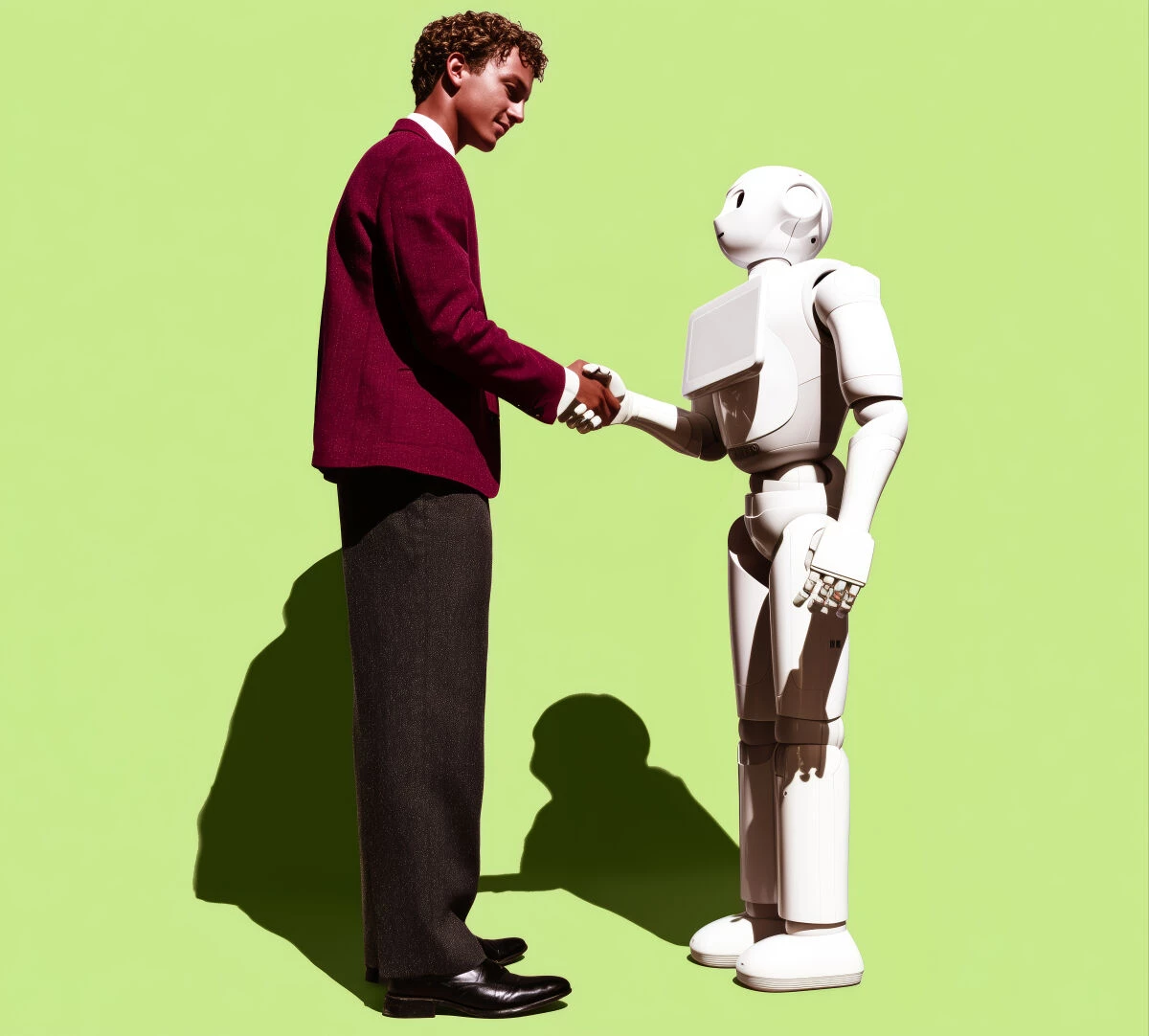From Smart to Sensitive: When AI Learns to Care
Feature on the future of Ai.
Imagine an AI that senses your state of mind and adapts instantly. For Rasmus Hyltegård, Global AI Retail Lead at Avanade, this “empathetic AI” is the next leap – turning technology into a companion as natural as your smartphone.

Author: Olga Blumhardt
Discover AT IFA 2025
- Unframe
- Plaud AI
- kikaGO
- Videobot
- Homewiz
- Emotii
- And more!
Mr. Hyltegård, AI can already respond to natural language, images and voice commands. Why is empathy the next big step?
Because humans aren’t static. Our needs shift throughout the day: in the morning I might be focused on work, in the evening on family, on holiday on discovery and leisure. Generative AI can adapt to those different personas, offering the right kind of support at the right time. That’s what we call life centricity: living life in your own way, every day.
You talk about “agentic AI”. What exactly is that?
These are autonomous agents — systems that can take initiative, understand context and act on your behalf. They extend your abilities, offering insights or taking on tasks you might not want to handle yourself. In many cases, they can do 80 % of the work, leaving you free to focus on the 20 % that plays to your strengths, your superpowers. Over time, these agents won’t just wait for instructions; they’ll anticipate what you need next.
Is that truly empathy? Or simply better digital assistance?
It’s both. Tools like Microsoft Copilot make office work easier, but they also point toward a future where humans and AI collaborate almost seamlessly. As the saying goes, AI won’t replace you. A human using AI will. This isn’t about replacing people; it’s about amplifying what we can do.
Which sectors are seeing the most value today?
Every sector. The real question isn’t whether AI is useful, it’s whether organisations can see the opportunity, whether they trust the technology, and whether they understand where and how to deploy it for scaled value. That’s why the human must stay in the loop. We’re not at the stage where you hand over the keys to the house. AI is there to accelerate, not to take over entirely.

Trust seems central. How do you make sure it’s there?
By building in ethical guardrails. At Avanade, we sometimes turn down projects we don’t believe can be pursued responsibly. Microsoft, our close partner, has embedded a Responsible AI framework into its tools. Transparency, fairness and accountability aren’t add-ons – they’re prerequisites. If people can’t trust an AI system, they won’t use it.
Can AI ever truly understand what a person needs?
Even humans don’t always know what they need. AI will always be making an educated guess. But as it learns from our interactions – with our permission – those guesses can become remarkably accurate. If the response fits your need in that moment, does it really matter whether it came from a human or a machine?
Multimodal AI – avatars, voices, gestures – can make systems seem more human. Does that create real connection?
Sometimes. The paradox of empathetic AI is that it’s only as good as its last helpful interaction. People will switch off an agent the moment it fails to deliver. The design challenge is to make interactions feel natural while ensuring the output is consistently useful. Ultimately leaving us humans with the choice of when – and if – to use it.
And what about the science-fiction scenario: machines taking over?
Current AI is still just algorithms. They’re powerful, adaptive and often convincing – but they’re not sentient. The risk isn’t that they wake up, it’s that we overestimate their understanding. They can answer many questions – but that’s not the same as knowing why those questions matter•
We are the Robots

For a long time, people have been fascinated by the idea that machines might one day think, feel and act like they do. Nowhere is this vision more vividly portrayed than in science fiction films and series. Here are six must-see titles – recommended by Andreas Busche, culture editor at Tagesspiegel.
- A.I. Artificial Intelligence
(US 2001, director: Steven Spielberg)
A Pinocchio tale of a mecha boy who longs to become human. - Black Mirror: “Be Right Back” Season 2
(UK 2013, showrunner: Charlie Brooker)
A grieving woman rebuilds her late partner from his social media data with unsettling results. - Ex Machina
(UK 2014, director: Alex Garland)
A female cyborg outsmarts her creator in this sleek and chilling emancipation thriller. - Her
(US 2013, director: Spike Jonze)
A man falls for his chatbot Samantha in a bittersweet digital romance. - I’m Your Man
(Germany 2021, director: Maria Schrader)
A romantic comedy where a partner-bot exposes the bugs in human dating. - Humans
(UK 2015–2018, showrunner: Lars Lundström)
Household Synths unsettle families with desires that feel all too human.